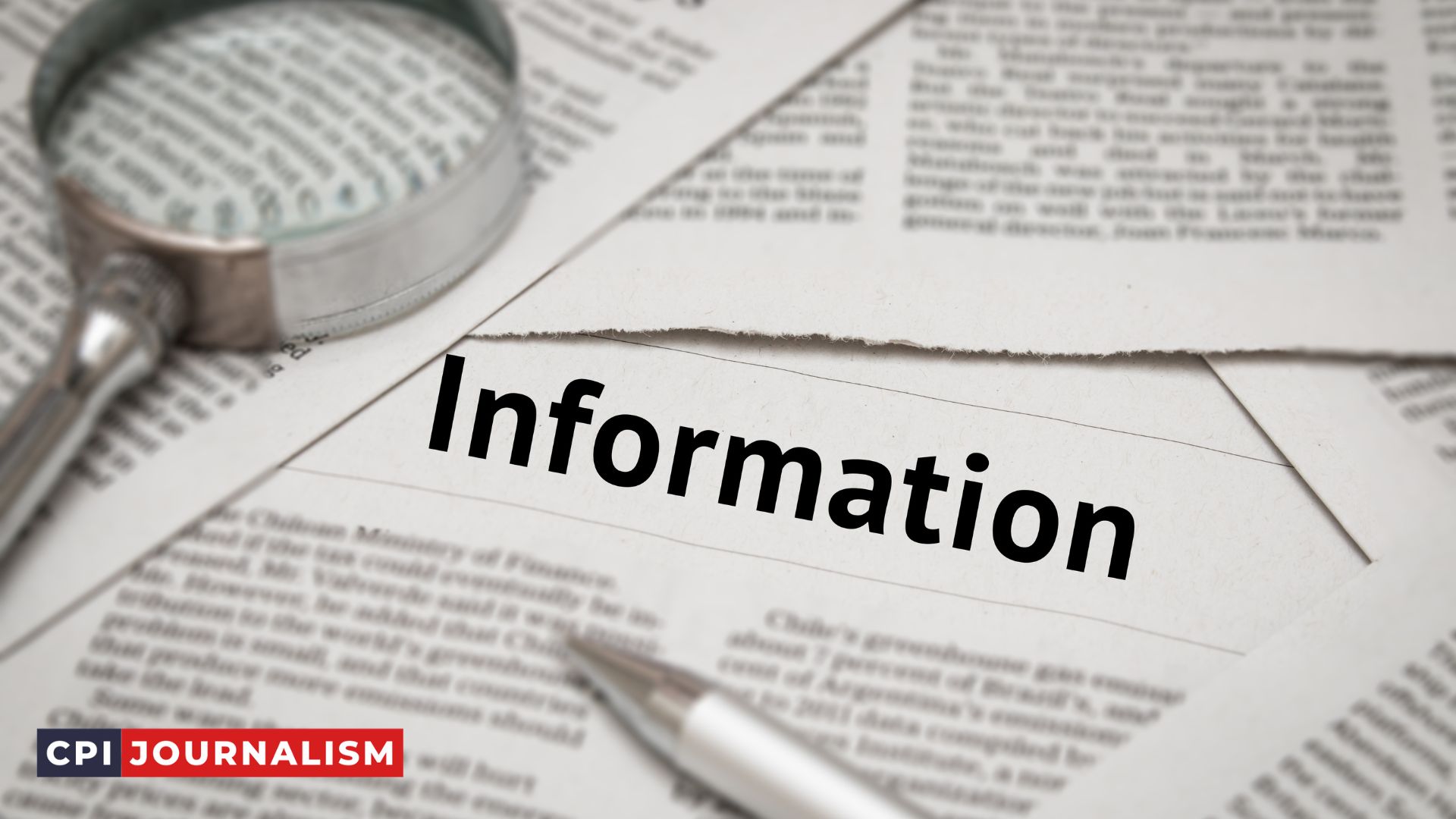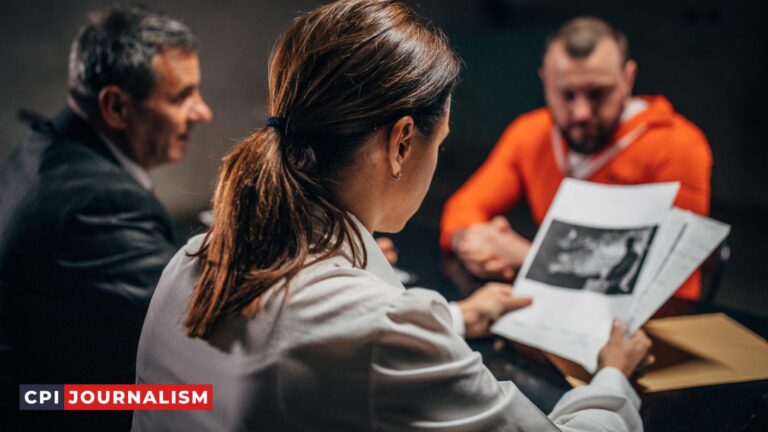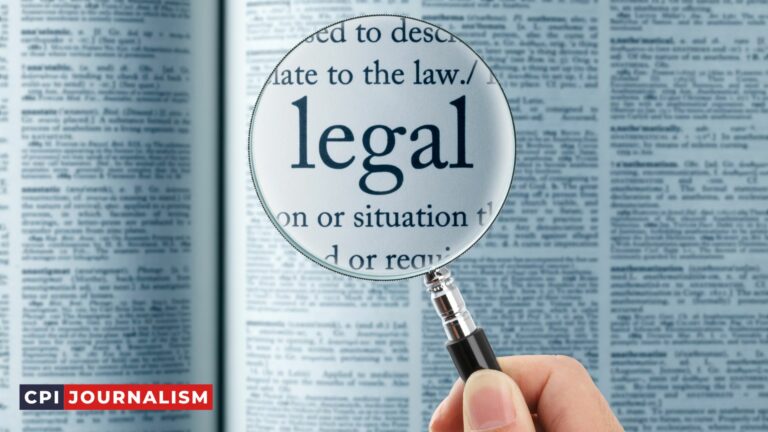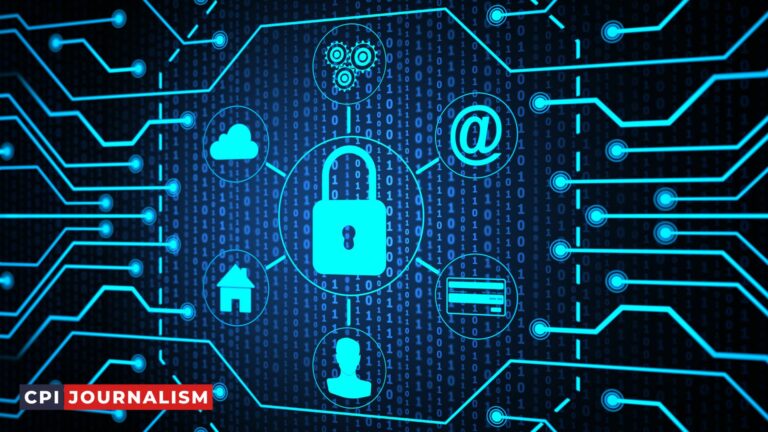What Are The Techniques For Effectively Interviewing Sources And Gathering Information In Investigative Reporting?
As an experienced investigative journalist, I’m here to share my wisdom, experience, and expertise with upcoming journalists on the techniques of effective interviewing sources and gathering information.
Investigative journalism is an important part of the newsroom. It helps inform the public on the truth and provides a more in-depth look into stories.
As such, it’s important that investigative journalists are well-informed and prepared when it comes to interviewing and gathering information. In this article, I will provide insight into the techniques of effective interviewing and gathering information in investigative reporting.
I hope that by the end of this article, you will have a better understanding of the process and feel more confident in your ability to engage in investigative journalism.
A. Overview of Techniques for Interviewing Sources and Gathering Information
As a journalist, it is important to have a sound understanding of the techniques available to you when it comes to interviewing sources and gathering information in investigative reporting. Knowing these techniques is essential for any successful investigation.
The most common technique used in investigative reporting is interviewing. This involves speaking directly with sources to gain a better understanding of the story.
When interviewing, it is important to be prepared, ask the right questions, and be aware of any potential biases. It is also important to give the source enough time to answer the questions and to be clear about the purpose of the interview.
Another important technique for gathering information in investigative reporting is document review. This involves reading, analyzing, and interpreting documents related to the story.
Documents can include news articles, court records, emails, and other sources of information. This can be a time-consuming process, but it can be invaluable in uncovering additional facts and details related to the story.
Finally, research is another technique that can be used in investigative reporting. Research involves using online databases, newspaper archives, and other sources to find information related to the story.
Research can be used to verify facts, find additional sources, or uncover new facts or developments related to the story.
These techniques can be used in combination or on their own, depending on the story and the resources available. By understanding and utilizing these techniques, investigative reporters can ensure that their stories are well-researched and accurate.
II. Preparing for an Interview
As an investigative journalist, interviews are an invaluable tool for uncovering the truth and gathering information. As such, it is important to properly prepare for each interview in order to maximize the effectiveness of the conversation.
Here are some tips to help you prepare for an interview:
1. Research the Person: Before the interview, try to learn as much as you can about the person you’re interviewing. This could mean reading their biography, researching their professional background, or even reading articles, books, or reports they’ve written.
Knowing more about your subject will give you a better understanding of their perspectives and points of view.
2. Develop a List of Questions: Before you meet with your source, it’s important to have a list of questions prepared. Your list should be comprehensive, addressing all the possible angles related to the topic you’re investigating.
It is also important to consider the type of questions you’re asking; try to avoid yes/no questions and instead ask open-ended questions that encourage your source to provide more detail.
3. Listen and Clarify: During the interview, be sure to listen carefully to your source’s responses and ask clarifying questions to get more information. This will help ensure that you fully understand the answers being provided and that you can accurately record the information.
4. Take Notes: It’s important to record the information you receive during an interview. Taking notes will help you remember the details of the conversation and will provide a reference for later use.
Be sure to record the answers accurately and completely and make a note if there is any additional follow-up that needs to be done.
By following these tips, you will be better prepared for your interview and can ensure that you get the most out of the conversation.
A. Researching The Topic
Effective investigative reporting requires thorough research of the topic at hand. Knowing the facts and background of the story is essential in order to ask the right questions and uncover key details. As an experienced journalist,
I recommend the following techniques for researching the topic before conducting an interview:
1. Read and review related material: Before going into an interview, make sure to read up on the topic and any related material. This can include news articles, books, reports, and other sources. Doing this research will help you better understand the issue and determine what questions to ask.
2. Research the interviewee: It’s important to learn as much as you can about the person or people you are interviewing. Knowing their background, history, and beliefs can help you craft more effective questions.
3. Utilize social media: Social media can be an invaluable source of information. Many organizations, politicians, and other public figures are active on these outlets and can provide valuable insight into the topic.
4. Gather data: Statistics, charts, and data can add a layer of depth to the story. Researching these figures can help you gain a better understanding of the topic and help you craft more effective questions.
By utilizing these techniques, you can ensure that you are well-prepared before beginning your interview. Doing research beforehand will also help you identify any potential areas of focus and make sure that you don’t miss any key details.
B. Developing Questions
As an investigative reporter, it’s essential to ask the right questions in order to get the information you need. Developing good questions is an art form, and requires some practice.

Here are a few tips to help you develop effective questions for your interviews:
1. Know your subject matter. Before you start developing your questions, make sure you have a good understanding of the topic you’re covering. This will help you to craft questions that are relevant and will help you get the answers you need.
2. Consider the purpose of the interview. What information are you trying to gain from the interviewee? What do you need to know? Ask questions that will help you get to the heart of the matter.
3. Ask open-ended questions. Open-ended questions are questions that cannot be answered with a simple yes or no. They encourage the interviewee to give more in-depth answers and provide more information.
4. Don’t be afraid to ask follow-up questions. If something the interviewee says is particularly interesting or relevant, ask more questions to explore the topic further. This can provide valuable insights.
5. Avoid leading questions. Leading questions are those that suggest a particular answer. They can make the interviewee feel pressured to conform to the opinion of the interviewer. Instead, ask questions that allow the interviewee to express their own opinion.
By following these tips, you can develop effective questions for your interviews that will help you get the information you need for your investigation.
C. Establishing Rapport
As an investigative journalist, it is essential to establish a rapport with your sources in order to effectively gather information. Rapport building is an important part of the interviewing process, as it allows you to gain access to the source’s personal insights, experiences and opinions.
In order to build a rapport, it is important to be open-minded, non-judgmental and to provide the source with a safe space to share information.
In the initial stages of the interview, it is important to introduce yourself and explain the purpose and goals of the interview. This helps to ensure that the source is comfortable and aware of the topic of the interview, as well as the purpose you are trying to achieve.
It is also important to be mindful of the source’s time constraints and to be respectful of the information they are providing.
It is also important to be mindful of the body language of your sources. Pay attention to their facial expressions, posture and gestures. This helps to build trust, as you are able to understand the source better and tailor your questions accordingly.
Additionally, it is important to be mindful of the tone and volume of your voice. Make sure you remain professional and respectful in order to build a strong rapport with the source.
Finally, it is important to ask open-ended questions that allow the source to provide detailed and useful information. These questions should be specific to the topic and should be tailored to the source’s personal experiences and insights.
This helps to gain a deeper understanding of the issue and allows the source to feel comfortable sharing their opinion.
D. Establishing a Timeline
The key to successful investigative reporting is establishing a timeline. Once you have identified your sources and the information you need to gather, it’s important to establish a timeline of events.
This timeline should include key points in the story, such as when certain events occurred, who was involved and what the outcome was. This timeline will help you stay on track and on task as you research and write your story.
When creating your timeline, it’s important to consider the complexity of the story. If the story is intricate and involves a lot of different people and events, it may be helpful to create a timeline that is broken down into stages.
This will help you keep track of all the pieces of the puzzle and ensure that you have included all the important details.
It’s also helpful to use diagrams and charts to help you visualize the timeline. For example, if you’re researching a criminal case, you could create a chart showing the timeline of events and the people involved. This can make it much easier to keep track of who did what and when.
Finally, it’s important to be flexible with your timeline. As you conduct your research, you may discover that some events happened earlier or later than you originally thought.
It’s essential to stay flexible and adjust your timeline as necessary. This will ensure that your story is accurate and that you have included all the important information.
Conducting The Interview
For investigative reporters, the most important technique for effectively interviewing sources and gathering information is to know how to conduct the interview.
Being well prepared and having a good understanding of the topic at hand is essential for getting the most out of the interview and the information collected.
When interviewing a source, it is important to be clear and concise in your questions and to listen carefully to the answers. It is also important to remain objective and impartial during the interview.
Your goal should be to get as much information out of the source as possible, while being respectful of the source’s time and privacy.
When preparing for an interview, it is important to create an outline of the topics you wish to cover and to research the source and the topic thoroughly.
This will help ensure that you are well informed and prepared to ask the right questions and to follow up on any new information that you receive.
During the interview, it is important to remain focused and to ask open-ended questions that allow the source to provide their point of view and additional information.
It is also important to take notes during the interview, as it is important to have a written record of the conversation.
Finally, it is important to be aware of any legal restrictions that may be in place when interviewing a source. It is important to abide by any applicable laws and guidelines when conducting an interview, as this can have a significant impact on the outcome of the investigation.
A. Establishing Ground Rules
When it comes to effectively interviewing sources and gathering information in investigative reporting, establishing ground rules is a key step. It is important to begin any interaction with a source by setting out the rules for the discussion.
This allows both parties to understand how the conversation will proceed and what is expected of them.
When establishing these ground rules, ensure that the source fully understands the purpose of the interview and the parameters of the conversation.
Explain what information you are looking for and make sure any details that may be sensitive or confidential in nature are discussed in private. It is also important to be clear about how the information will be used, including any potential repercussions.
In addition to setting out the rules of the conversation, it is also important to ensure the source is comfortable with the process. Be sure to provide an opportunity for the source to ask questions and express any concerns they may have.
This can help create an atmosphere of trust, which is essential for any successful investigative reporting.
Finally, be sure to establish a timeline for the interview. Let the source know what to expect and when. This is especially important if you are looking for an in-depth interview, as it can help ensure that all the necessary information is gathered in a timely manner.
By establishing ground rules for your investigative reporting interviews, you can ensure that both you and your source are on the same page and that the conversation is productive and successful.
B. Listening and Taking Notes
One of the most important techniques in investigative reporting is effective listening and taking notes. This is a skill that requires practice, focus and concentration.
Here are some tips on how to make sure that you listen effectively and take accurate notes:
1. Listen actively. Listen to what the source is saying and make sure you are paying attention to the details. Don’t interrupt and make sure you are focused on the conversation.
2. Ask clarifying questions. If you don’t understand something, don’t be afraid to ask questions. This will help you to better understand what the source is saying and make sure you have the right information.
3. Take accurate notes. Make sure you are taking notes correctly and accurately. It’s important to capture the details of the conversation, as well as any key points that may be relevant to the story.
4. Summarize what you heard. After the conversation is over, take a few minutes to summarize what you heard. This will help you to better remember the details and recall them later when needed.
By following these tips, you can make sure that you are effectively listening and taking accurate notes when interviewing sources for investigative reporting.
C. Asking Follow-up Questions
Asking follow-up questions is an important part of the investigative reporting process. It allows you to probe deeper into the subject, uncovering more details and uncovering new leads.
Follow-up questions should be tailored to the individual being interviewed and take into account their answers to your initial questions.
When asking follow-up questions, it is important to remain focused on the topic and avoid getting sidetracked by tangents.
Ask questions that allow the subject to elaborate on the initial answer. Try to ask open-ended questions that allow the subject to offer more than just a yes or no response.
Be sure to ask questions that are relevant to the topic and that are not leading. Leading questions are those which suggest a desired response, and can bias the subject’s answer. Instead, ask questions that allow the subject to provide their own opinion or interpretation.
Finally, be sure to ask questions that will help you draw conclusions from the information you have gathered. Ask questions that will help you determine whether the information you have collected is reliable and valid.
Asking follow-up questions is a critical part of the investigative reporting process. With practice and patience, you can hone your skills in this area and become a more effective investigative reporter.
D. Recording the Interview
Recording the interview is an essential part of investigative reporting. It is important to have a clear record of the conversation, so that you can refer back to it later if needed. There are several ways to record an interview, depending on the situation and your preferences.
One way to record an interview is by using a digital recorder. Digital recorders are small, portable devices that can be used to capture audio.
They can also be used to record video if you are interviewing over Skype or another video streaming service. Digital recorders are great for capturing high-quality audio, and they are relatively inexpensive.
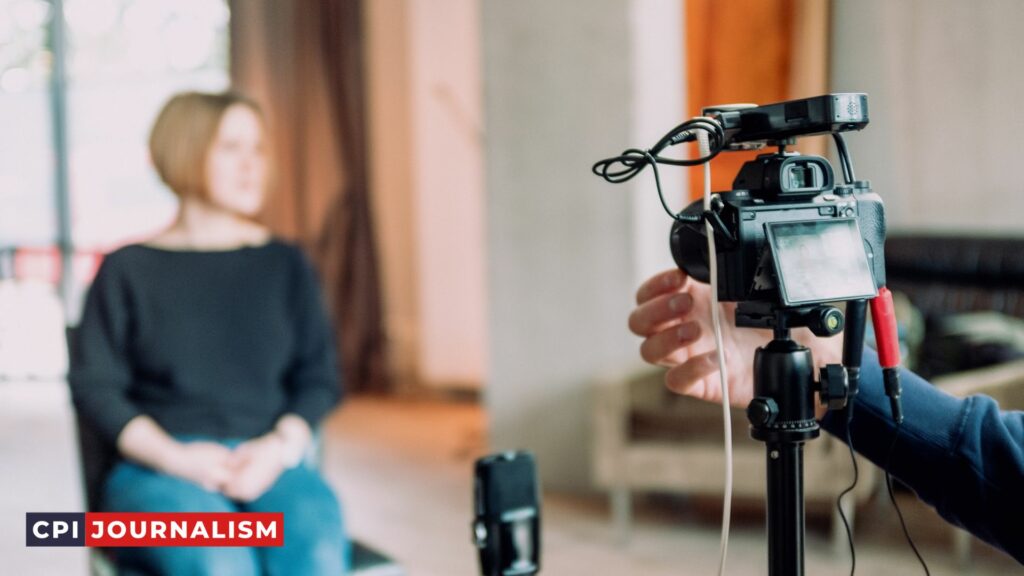
Another option is to use a smartphone to record the interview. Most smartphones come with an app that can be used to record audio and video.
The advantage of using a smartphone is that you don’t have to carry any additional equipment around with you. However, the quality of the recording may not be as high as with a digital recorder.
Lastly, you can also record the interview by taking notes. Writing down key points can help you to remember the important details of the conversation.
It can also provide a helpful reference if you need to check any facts. However, it is important to note that taking notes can be time-consuming and can be a distraction if you are not used to it.
There is no right or wrong way to record an interview. The most important thing is to choose the method that works best for you and your situation.
IV. Gathering Information
Gathering information for investigative reporting is a critical part of the process. It is important to use the right techniques to make sure that you are getting accurate and reliable information from your sources.
Here are some tips for effectively interviewing sources and gathering information:
1. Start by researching the topic you are investigating. Research is key to understanding the background of the story and can help you ask the right questions.
2. Develop a list of questions to ask. Make sure that your questions are clear and direct and that they focus on the issues you are investigating.
3. Choose your sources carefully. It is important to choose reliable sources who have firsthand knowledge or direct experience related to the topic you are investigating.
4. Prepare your sources. Make sure that your sources understand the purpose of the interview and the type of information you are seeking.
5. Take notes during the interview. Take notes or record the interview to ensure that you capture all the information that you need.
6. Ask follow-up questions. If you need more information or clarification, ask follow-up questions.
7. Verify the information. Always double-check the information you receive from sources to make sure that it is accurate.
By following these tips, you can ensure that you get the information you need for your investigative reporting.
A. Utilizing Technology
In today’s modern world, technology has become an integral part of the investigative reporting process. To effectively interview sources and gather information, journalists must be well-versed in the use of technological tools and resources.
One of the most important tools for investigative reporting is digital audio and video recording. Recording conversations and interviews can provide invaluable first-hand evidence, and can also be used to document sources who may be reluctant to speak on the record.
Digital recording devices are also essential for recording events in the field, such as protests or rallies.
In addition to audio and video recording devices, journalists should also be familiar with the latest software and applications for conducting interviews. Applications such as Skype and Zoom allow journalists to conduct remote interviews with sources from all over the world.
Similarly, tools like Google Hangouts enable journalists to conduct group interviews with multiple sources at the same time.
Journalists should also be familiar with social media platforms and other online tools for gathering information and connecting with sources. Twitter, Instagram, and other social media sites can provide invaluable insight into newsworthy events, while also allowing journalists to connect with sources and build relationships.
Similarly, search engines like Google and Yahoo can provide journalists with access to important documents and other sources of information.
By utilizing the latest technology, investigative reporters can effectively interview sources and gather information.
By staying up-to-date with the latest technological tools, journalists can ensure that they have the necessary resources to conduct thorough and effective investigations.
B. Utilizing Documents
When it comes to investigative reporting, documents play a major role in the process. They provide a reliable source of information that can be used to corroborate or refute claims and to gain insight into a particular issue or situation.
As such, it is important to utilize documents in your interviews and information gathering process.
When interviewing sources, be sure to ask for any relevant documents that may help corroborate their claims or provide insight into the issue. This can include official documents such as licenses or permits, as well as personal documents such as emails, contracts, and bank statements.
When gathering documents, it is important to be clear about what information you are looking for. Ask the source for any documents that may be relevant to the issue, and be sure to specify any particular documents that you are looking for.
Additionally, make sure to ask for permission to keep copies of any documents that you may find.
When reviewing documents, be sure to note any discrepancies or inconsistencies that may be present. This can sometimes provide insight into the issue at hand or even the reliability of the source.
Finally, be sure to utilize public records when conducting your research. Public records can provide valuable information and insight into a particular issue and can be used to corroborate a source’s claims or to refute them.
Public records can be accessed through a variety of sources, including local, state, and federal government agencies, as well as online databases.
C. Utilizing Other Sources
In addition to interviewing sources, investigative reporting also requires the use of other sources for gathering information. This may include documents, public records, data, or other sources that can provide valuable insight into the story.
When using documents, public records, and data, it is important to take the time to review them thoroughly. This may mean sorting through hundreds of documents or records to find the ones that are most relevant to the story. It can also mean analyzing the data to understand any patterns or trends that may be present.
In addition, investigative reporters should also look beyond the documents, public records, and data. They should consider speaking with other sources who may have unique perspectives or insights into the story.
These may include experts in the field, people with direct knowledge of the situation, or people who can provide a different point of view.
Finally, when gathering information, it’s important to remain objective and to avoid any personal biases. It’s also important to remain professional and to treat sources with respect.
Ultimately, the information gathered should be accurate and reliable, and should provide the readers with the most comprehensive view of the story.
D. Utilizing Social Media
Social media is an important tool for investigative reporting. It provides journalists with an opportunity to reach out to potential sources and to investigate and uncover stories. Social media also offers an easy way to spread news, engage audiences, and build relationships.
When using social media for investigative reporting, it is important to be judicious and professional.
Journalists should use social media platforms to connect with their sources, but they should also be aware of potential ethical issues, such as using personal information without permission or pressuring sources for information.
When using social media for investigative reporting, journalists should ensure that their sources are credible and reliable. It is important to use verified sources and to cross-check information with multiple sources.

Journalists should also be aware of the potential for false information or biased information, and they should be prepared to investigate further if necessary.
In addition, it is important to use social media to build relationships with sources and audiences. This can help create trust between journalists and sources and increase the likelihood of uncovering a story. Social media can also be used to promote stories and build an audience.
By utilizing social media responsibly and professionally, journalists can uncover stories and engage their audiences. Social media can be a powerful tool for investigative reporting, but it is important to be aware of ethical issues and potential pitfalls.
V. Conclusion
Investigative reporting can be a rewarding and fulfilling experience as it allows journalists to uncover truths, shed light on important issues, and bring attention to important stories that may have otherwise gone unnoticed.
However, it is also a difficult and challenging task that requires a great deal of preparation, research, and interviewing skills. Fortunately, there are a variety of techniques that journalists can use to effectively interview sources and gather information for their investigative reporting.
These include using open-ended questions, verifying the credibility of sources, developing relationships with sources, and using active listening. By preparing for and utilizing these techniques, journalists can ensure that their investigative reporting is successful and informative.
A. Summary of Techniques for Interviewing Sources and Gathering Information
Effective interviewing and information gathering are two of the cornerstones of successful investigative reporting.
As an experienced journalist, I have found that the following techniques are essential for conducting successful interviews and gathering information:
1. Preparation: Before beginning an interview, it is important to do research to ensure that you have a thorough understanding of the topic, as well as the interviewee. This will ensure that you have the necessary background information to ask informed questions and draw out relevant information.
2. Establish Rapport: Establishing a good rapport with the interviewee is essential for getting honest and accurate information. Use active listening techniques to show that you are interested in what the interviewee has to say and make them feel comfortable in sharing their thoughts and feelings.
3. Ask Open-Ended Questions: Open-ended questions are key for getting detailed and meaningful responses. Ask questions that cannot be answered with a simple “yes” or “no”, such as “What made you come to this conclusion?” or “How did you feel when you learned the news?”
4. Follow-Up Questions: It is important to ask follow-up questions to ensure that you have a full understanding of the information that is being provided. This will also allow you to probe for additional information and uncover potential inconsistencies.
5. Document Everything: Whether interviewing in person or over the phone, it is important to document all the information that you receive.
This includes taking notes, recording the interview, and if possible, securing a signed release form from the interviewee granting permission to use their comments.
By following these techniques, you can ensure that you are conducting effective interviews and gathering the necessary information for your investigative reporting.
B. Benefits of Effective Investigative Reporting
Investigative reporting is an important part of journalism and can yield significant benefits for both journalists and the public. By conducting thorough investigations, journalists can uncover important and often overlooked facts that can lead to meaningful changes in society, policy, and the law.
The primary benefit of investigative reporting is that it helps to uncover hidden truths and bring them to the public’s attention. By using a variety of techniques, such as interviews and research, journalists can expose issues and facts that would otherwise remain hidden from public view.
This often leads to increased public awareness and a better understanding of these issues.
Furthermore, investigative reporting can also have a direct impact on public policy by uncovering facts that can influence decisions and legislation.
By uncovering information that is not easily accessible or known to the public, investigative reporters can bring about meaningful changes in public policy and the law.
Finally, investigative reporting also has a positive effect on the media industry by helping to increase the credibility of news outlets.
By uncovering important information and reporting it accurately, news organizations can gain a reputation as a reliable source of information, which can lead to increased viewership and readership.
In conclusion, investigative reporting has many benefits that make it an important part of journalism.
By uncovering hidden facts and bringing them to light, investigative reporting can lead to increased public awareness, changes in public policy and the law, and increased credibility for the media industry.

